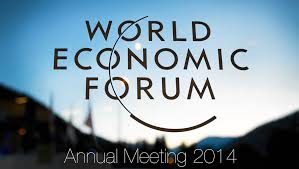World Economic Forum has said that a new white-paper outlining the key considerations in setting the course for Africa’s energy future was released at the 2021 Sustainable Development Impact Summit. The report, “Financing the Future of Energy,” outlines Africa’s electricity landscape and financing options in context with the global drive to reduce carbon emissions. It said “Africa’s power sector will play a central role in the transition from fossil fuel-driven power generation to a renewable-strong energy mix”.
According to the white-paper written in collaboration with Deloitte, the migration to a multi-stakeholder-oriented net-zero power grid is being driven by “the 3Ds:” decarbonisation: moving from fossil fuel sources to renewables; decentralisation: shifting from centrally managed generation, transmission, and distribution to decentralised systems and digitalisation: leveraging digital technology to advance the transition. The report contends that new coalitions and investments with developed nations and NGOs including the World Economic Forum must coordinate and enable countries to leapfrog existing technologies and infrastructure. “The need for digitally smarter utility platforms and sustainable development programs will guide global leaders in helping to shape equitable and inclusive recovery programs,” said Chido Munyati, Head of Africa at the World Economic Forum.
“The entire continent remains vulnerable, but this white-paper offers a view on what are viable financing options that exist today for clean energy sustainability and equitable recovery for all of Africa. Funding will be the biggest hurdle to ensuring Africa’s sustainable transition to Renewables at scale; there are many financing solutions available,” said Mario Fernandes, Director, Africa Power Utilities and Renewables, Deloitte. “Africa’s winners will be the ones that are able to leverage what exists while creating an enabling environment for the private sector through a Renewables Energy Investment facility.” Case studies in China and India showed that financing solutions for a clean energy transition often involve long cycles. Economic booms in these countries resulted in a significant shift in carbon emissions. Since similar economic booms are expected across Africa, the report highlights how crucial it is to anchor growth in technologies that can enable lower emissions.
While Africa’s contribution to greenhouse gas emissions from fossil fuel significantly lags behind those of other continents, it still carries a huge potential to accelerate the transition to a net-zero future. Currently, half of the continent lives without adequate access to electricity. As energy demands increase, the energy gap could be bridged through clean energy alternatives, if the financing solutions are employed now.

